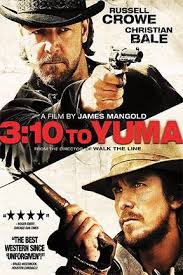David Meyer of Fortune magazine reports the U.S.’s mysterious E. coli outbreak now has a likely culprit: romaine lettuce grown around Yuma, Arizona. And consumers are being given conflicting advice on what to do to protect themselves.
 The Food and Drug Administration (FDA) and Centers for Disease Control and Prevention (CDC) said Wednesday that any consumers in the U.S. who have store-bought chopped romaine lettuce should throw it away. If they want to buy romaine lettuce from now on, they should first check with the store or restaurant that it wasn’t grown in the Yuma region, the agencies said.
The Food and Drug Administration (FDA) and Centers for Disease Control and Prevention (CDC) said Wednesday that any consumers in the U.S. who have store-bought chopped romaine lettuce should throw it away. If they want to buy romaine lettuce from now on, they should first check with the store or restaurant that it wasn’t grown in the Yuma region, the agencies said.
However, Consumer Reports has gone a step further, advising people to avoid all romaine lettuce for the time being. Why? Because people may find it difficult to establish for sure that their lettuce does not come from the growing region that’s suspected to be the source.
Niraj Chokshi of the New York Times reported that CDC said in a statement, “If you do not know if the lettuce is romaine, do not eat it and throw it away,” the C.D.C..
The agency was first alerted to the outbreak by health officials in New Jersey, who had noticed an increase in E. coli cases in the state, said Dr. Laura Gieraltowski, an epidemiologist at the C.D.C. After some discussion, it became clear that many of those infected had eaten chopped romaine lettuce at restaurants before getting sick.
Concerned, the agency looked for related cases by checking PulseNet, a national network of laboratories that catalog samples of harmful bacteria from infected patients.
“When we looked back into our PulseNet system we saw that there were other cases in other states with the same DNA fingerprint,” Dr. Gieraltowski said.
The C.D.C. learned that the others infected by that particular strain, E. coli O157:H7, had also eaten chopped romaine lettuce at restaurants before getting sick, she said. It turned over the information to the Food and Drug Administration, which helped trace the outbreak to Yuma, Ariz.
 To pinpoint the exact source, though, investigators would need samples of the tainted lettuce. But because of the short shelf life of lettuce and the time it takes for an outbreak to be identified, obtaining such a sample may prove difficult.
To pinpoint the exact source, though, investigators would need samples of the tainted lettuce. But because of the short shelf life of lettuce and the time it takes for an outbreak to be identified, obtaining such a sample may prove difficult.
However, a cluster of eight illnesses in an Alaska prison may help pinpoint the source.
Dr. Joe McLaughlin, with the Epidemiology Section at the state Department of Health and Social Services, said health officials had responded last week to an outbreak of E. coli O157:H7 bacteria at the Anvil Mountain Correctional Center in Nome, Alaska.
None of the eight patients have died or been hospitalized, in cases which were noticed between April 5 and April 15. All ate “significantly higher” numbers of salads than other people at Anvil Mountain, however, and have shown the same symptoms.
“Our outbreak is the first one I know of that’s been associated nationally with the consumption of whole heads of lettuce rather than chopped lettuce,” McLaughlin said. “What this outbreak suggests is that the source of contamination may actually be at the farm rather than the actual processing of the lettuce.”
Duh.
CDC reports in its latest outbreak update that information collected to date indicates that chopped romaine lettuce from the Yuma, Arizona growing region could be contaminated with E. coli O157:H7 and could make people sick.
At this time, no common grower, supplier, distributor, or brand has been identified.
Consumers anywhere in the United States who have store-bought chopped romaine lettuce at home, including salads and salad mixes containing chopped romaine lettuce, should not eat it and should throw it away, even if some of it was eaten and no one has gotten sick. If you do not know if the lettuce is romaine, do not eat it and throw it away.
Before purchasing romaine lettuce at a grocery store or eating it at a restaurant, confirm with the store or restaurant that it is not chopped romaine lettuce from the Yuma, Arizona growing region. If you cannot confirm the source of the romaine lettuce, do not buy it or eat it.
Restaurants and retailers should ask their suppliers about the source of their chopped romaine lettuce.
